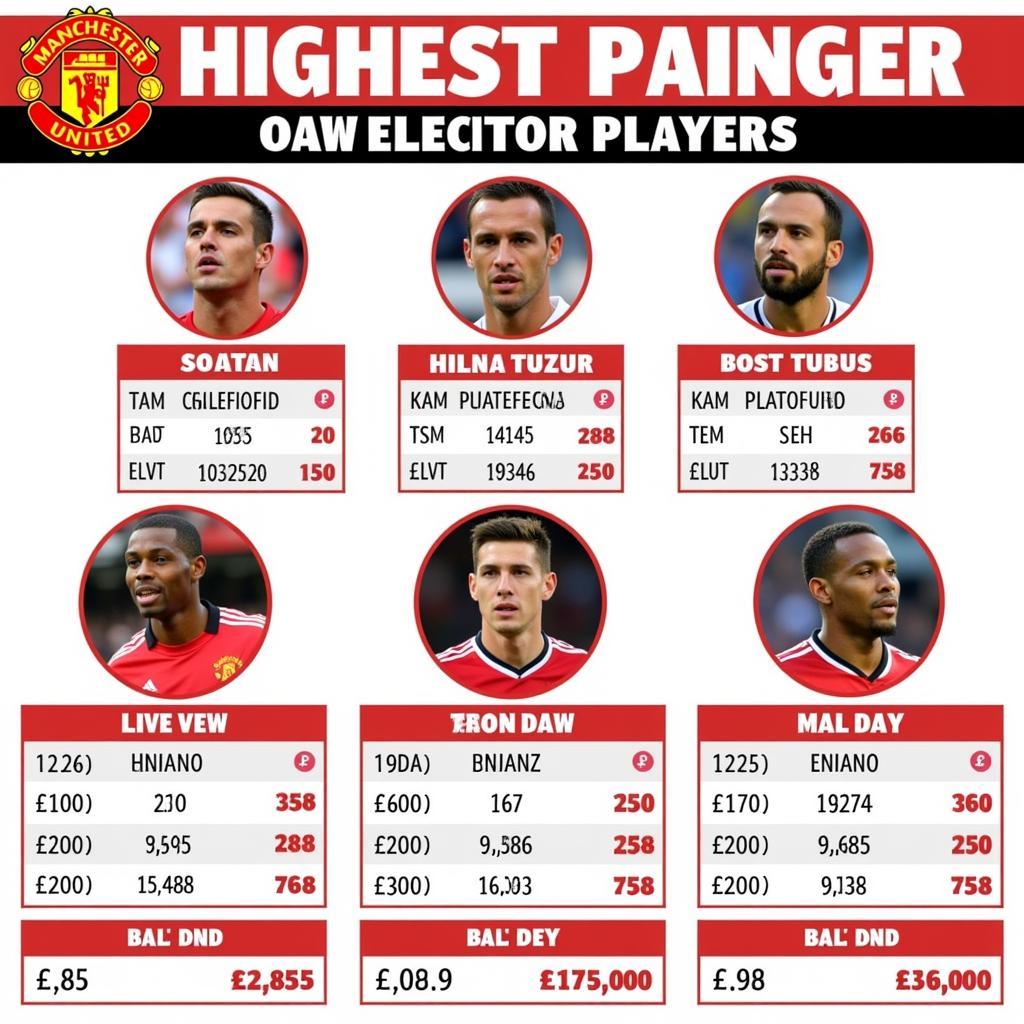Manchester United Player Salaries 2018: A Look at the Red Devils’ Wage Bill
October 23, 2024The 2018 season saw Manchester United navigate a turbulent period under Jose Mourinho, finishing second in the Premier League but falling short in other competitions. While the on-field performances were a mixed bag, one thing that remained consistent was the club’s massive wage bill. Let’s take a deep dive into Manchester United player salaries in 2018, examining the highest earners and the financial landscape of the Red Devils.
The Highest Earners at Old Trafford
Manchester United’s 2018 squad boasted a star-studded lineup, featuring global superstars and established Premier League players. As expected, these high-profile names commanded hefty salaries, reflecting their status and contributions to the team.
 Manchester United Top Earners 2018
Manchester United Top Earners 2018
Leading the pack was Alexis Sanchez, the Chilean forward who arrived from Arsenal with much fanfare in January 2018. Sanchez’s staggering £505,000 weekly wage made him the highest-paid player in the Premier League at the time, highlighting the club’s ambition to reclaim their place at the summit of English football.
Closely trailing Sanchez was Paul Pogba, the French midfielder who returned to Old Trafford in 2016 for a then-world record fee. Pogba’s £290,000 weekly salary underlined his importance to the team, as the club looked to build their midfield around his unique talents.
Other notable high earners included Romelu Lukaku (£250,000 per week), David de Gea (£200,000 per week), and Zlatan Ibrahimovic (£190,000 per week), showcasing the depth of quality and experience within the squad.
Analyzing Manchester United’s Wage Structure
Manchester United’s 2018 wage bill exceeded £300 million, making it one of the highest in world football. This significant financial outlay reflected the club’s global stature, commercial power, and determination to compete for major honors.
The club’s wage structure reflected a clear hierarchy, with top earners like Sanchez and Pogba commanding significantly higher salaries than other squad members. This disparity highlighted the premium placed on proven performers and match-winners in the modern game.
However, this top-heavy wage structure also presented challenges, potentially creating a sense of inequality within the squad and limiting the club’s flexibility in the transfer market. Finding a balance between rewarding star players and maintaining a sustainable wage bill was crucial for long-term success.
Conclusion: The Financial Realities of Elite Football
Manchester United’s 2018 player salaries offered a fascinating glimpse into the financial landscape of elite football. The club’s massive wage bill reflected their ambition and global appeal, but also highlighted the challenges of managing player expectations and maintaining financial stability.
As Manchester United continue their pursuit of Premier League and Champions League glory, their wage structure will undoubtedly evolve. Balancing the desire for star power with the need for financial prudence will be paramount as the Red Devils navigate the ever-changing world of football finance.